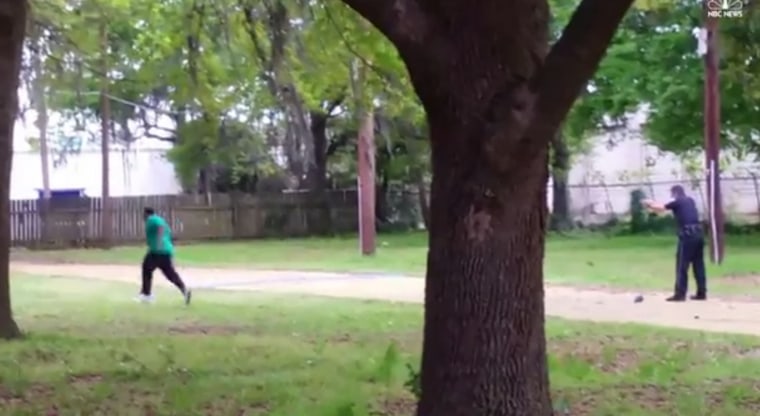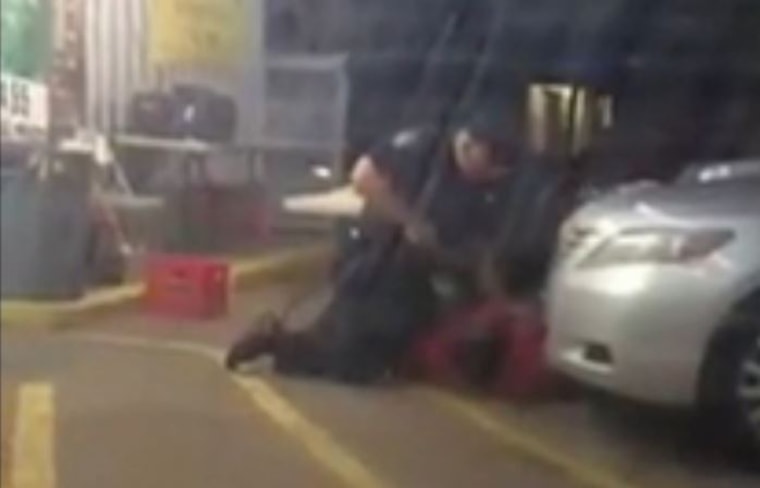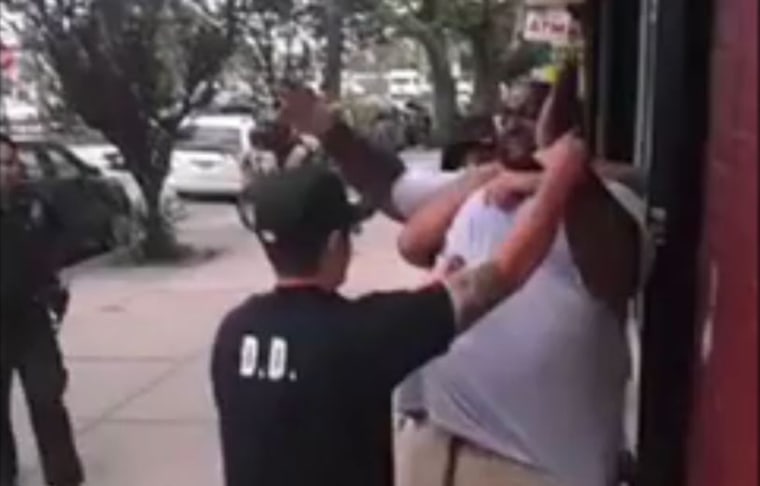Black people are more likely to be stopped by police but — once they are stopped — they are less likely to be shot than whites, new research finds.
The study could not say whether blacks, Hispanics and American Indians are more likely to commit crimes and thus be arrested, but they are more likely to be arrested once stopped, the research finds.

The study doesn’t claim to be the last word on whether police are unfairly targeting blacks, but does shed some light on an issue that’s been made volatile in recent months with cellphone videos that show upsetting incidents, said Ted Miller of the Pacific Institute for Research and Evaluation in Maryland, who led the study.
“I wanted to better inform the discussion,” said Miller, an economist specializing in public health.
Related: Police Shoot Unarmed Caregiver With His Hands Up
His team pulled together statistics from wherever they could find them: the Centers for Disease Control and Prevention, FBI, state police websites, hospital records and two investigative series by the Washington Post and Guardian newspapers.
“U.S. police killed or injured an estimated 55,400 people in 2012,” they wrote in the journal Injury Prevention.
“Blacks, Native Americans and Hispanics had higher stop/arrest rates per 10,000 population than white non-Hispanics and Asians.”
“U.S. police killed or injured an estimated 55,400 people in 2012."
Rates are important because they take into account each group’s proportion of the population. Blacks make up about 13 percent of the U.S. population, but accounted for 28 percent of arrests.
“Those with the highest arrest rates per 10,000 population were ages 15–29 years, black or Native American,” the team wrote.
There are many violent interactions, Miller found.
“On an average day, three people die and 150 people are treated at a hospital because they are injured by police,” Miller told NBC News.
Related: Michael Jordan Speaks Out on Race Issues
“During 2012 an estimated 67,000 law enforcement personnel were assaulted, with an estimated 18,600 medically treated for injury and 48 killed.”
But once they stopped someone, police were just as likely to hurt or injure whites as people of any other race, they found.
“Blacks have high arrest and stop rates, and per capita [among the general population] are much more likely than whites to die at the hands of police,” the team found.
“However, when blacks are stopped or arrested, they are no more likely than whites to be injured or die during that incident.”

Other research supports this.
“Consistent with our findings, simulation studies find police are no more likely to fire on unarmed blacks than unarmed whites, and high rates of black speeding citations per capita result from high violation rates,” the team wrote,.
“A systematic review identified 10 studies that found suspect race/ethnicity did not predict use of force or its escalation.”
“Blacks have high arrest and stop rates, and per capita are much more likely than whites to die at the hands of police."
So now the important question to answer will be whether that increased rate of stop and arrest is unfair or biased, Miller said. He was not able to find out if police were more likely to stop blacks for trivial reasons — although they were more likely to let whites go once stopped.
“We know that low-income neighborhoods have more crime,” Miller said. And minorities are more likely to have low incomes. “Some disparities could be due to income rather than race,” he said.
And it could be that fear of police violence has caused blacks to be more polite than whites in their interactions.
Related: African-American Cops React to Violence
“Frequent police stops of young men have caused many black and some Hispanic mothers to teach their sons where to put their hands if approached by an officer, how to move and not move, to ask permission before reaching for their wallet, and to respond to police rudeness with respect,” the team wrote.
“Those talks may have protective effects.”
There’s another factor. “Most of the people who die had a gun with them,” Miller said. He compared the U.S. situation to Australia, where just as many people are injured, but fewer are shot to death in police stops. Australia has much stricter laws on carrying guns than the U.S. has.
“Police aren’t as scared. The police are not as endangered,” he said.
But Miller said the statistics show that there is far too much violence when police stop Americans in general, and he said it’s up to police to do something about that.
“You and I might get stopped once in our lives. The police stop people every day. They need to be the ones trained to de-escalate,” he said.
It’s important for people not to make police angry, but it’s also important for police to control their emotions, Miller said.
“The question is how to make the system forgiving enough so that when somebody makes a mistake, everybody lives,” he said.

